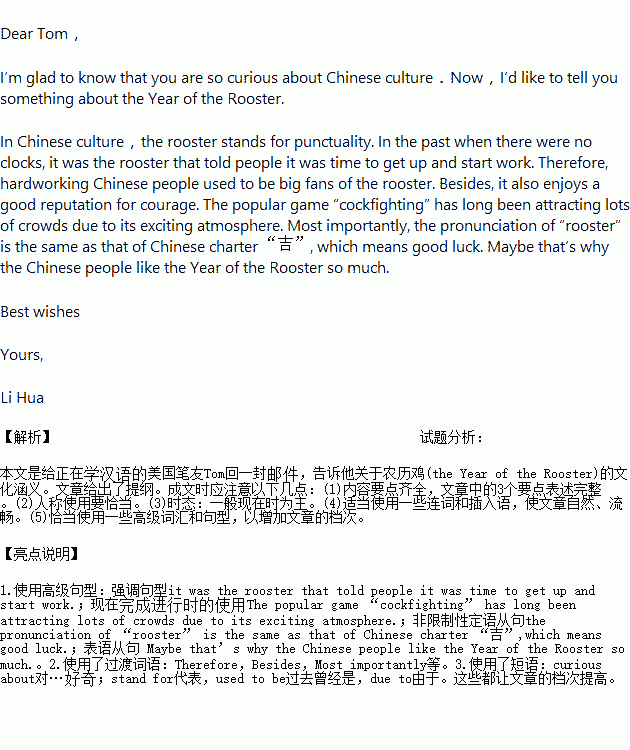题目内容
假如你是李华,你的美国笔友Tom最近正在学习汉语,对中国文化很感兴趣。他给你发来了一封邮件,询同你农历鸡(the Year of the Rooster)的文化涵义,请你根据以下要点,给他写一封回信。
1、代表守时:可以报时。
2、代表勇敢:斗鸡游戏(cockfighting)
3、代表吉祥:鸡与“吉”同音。
注意:
1.可适当增加细节,以使行文连贯;
2.词数100左右;
3.文章开头已给出,不计入总词数。
Dear Tom,
I’ m glad to know that you are so curious about Chinese culture.____________________
________________________________________________________________________________________________________________________________________________________________________________________________________________________________________________________________________________________________________________________________________________________________________________________________________________________________________________________________________________________________________________________________________________________________________________________________________________________________
Yours,
Li Hua

